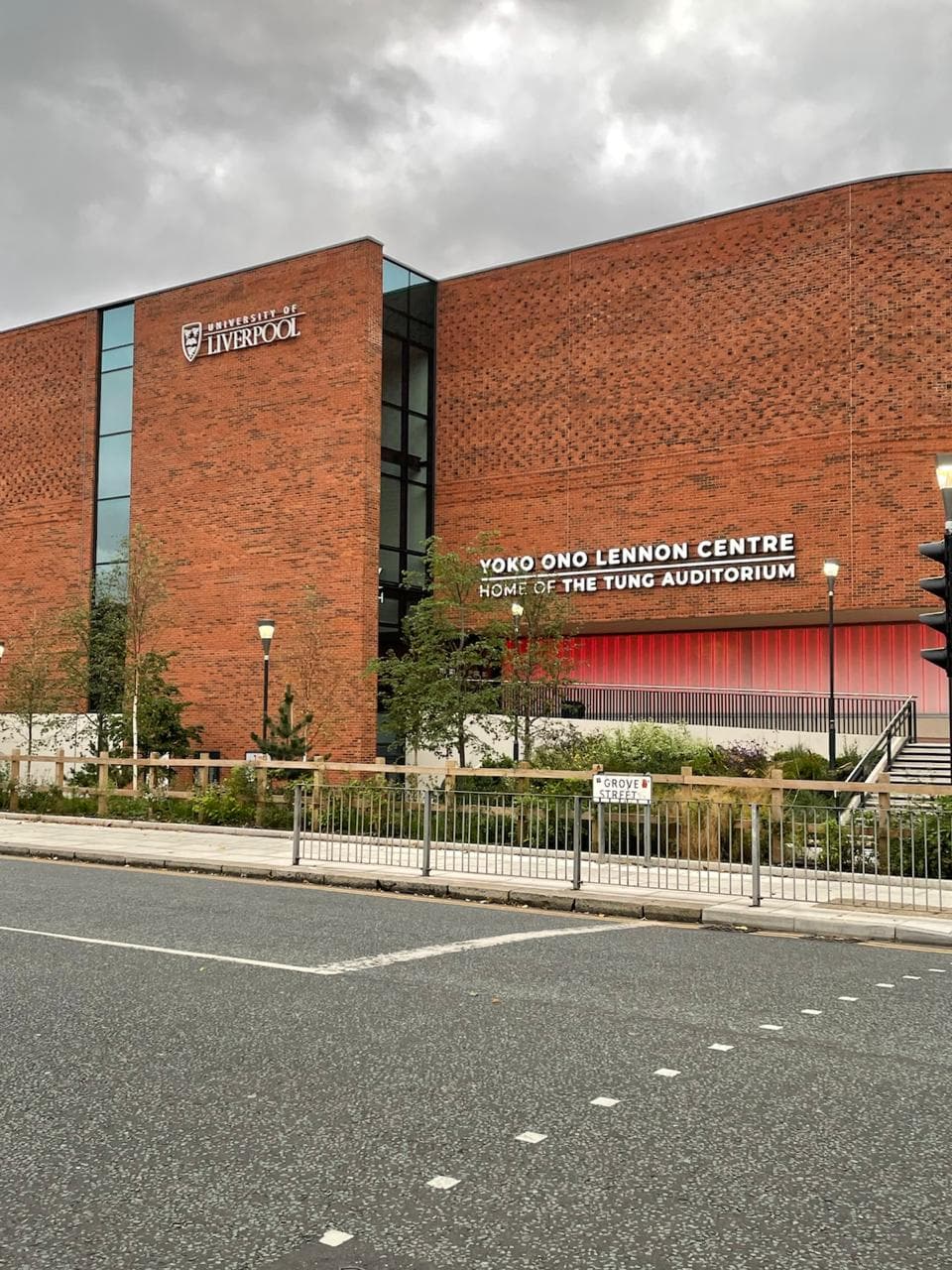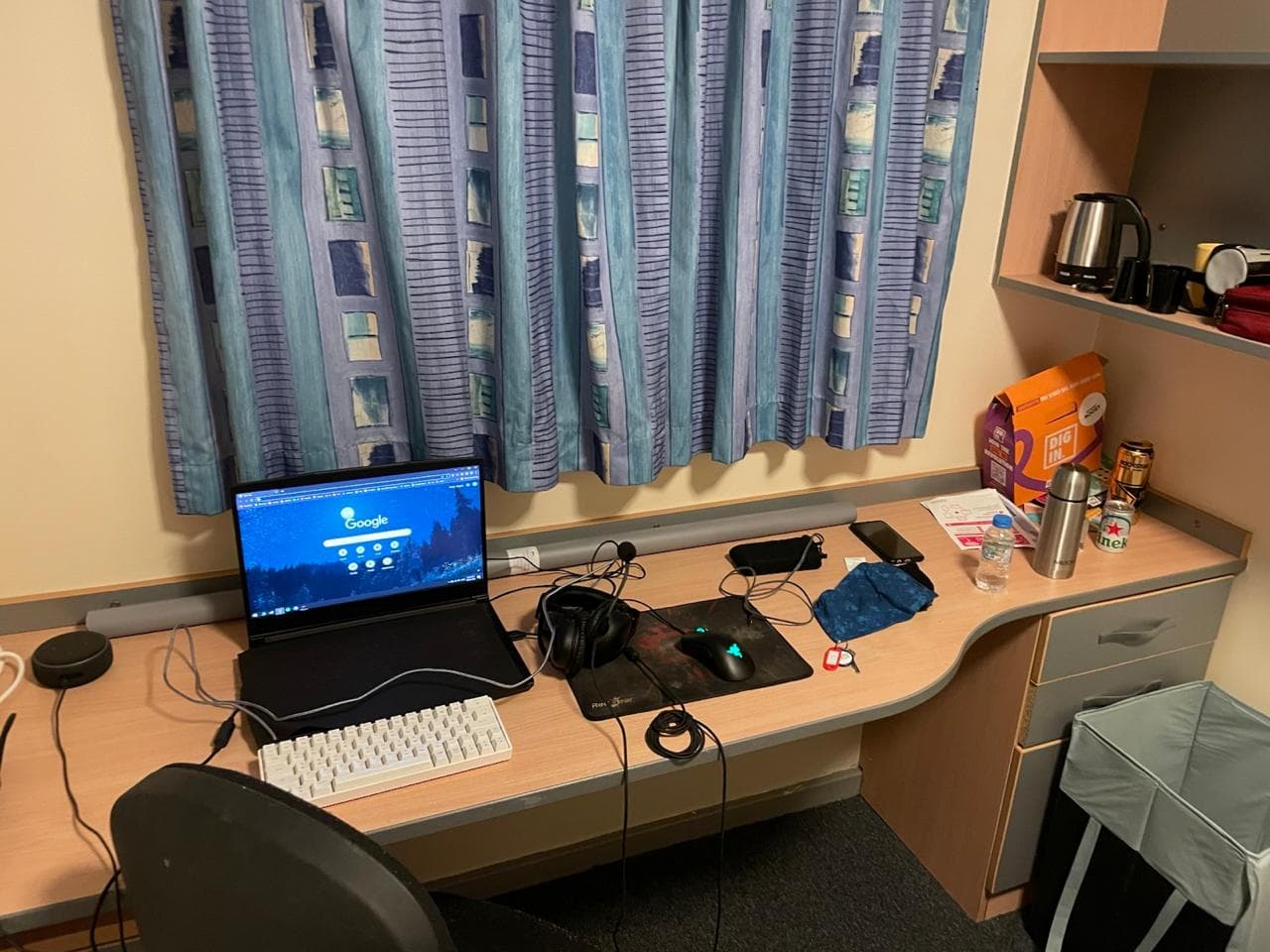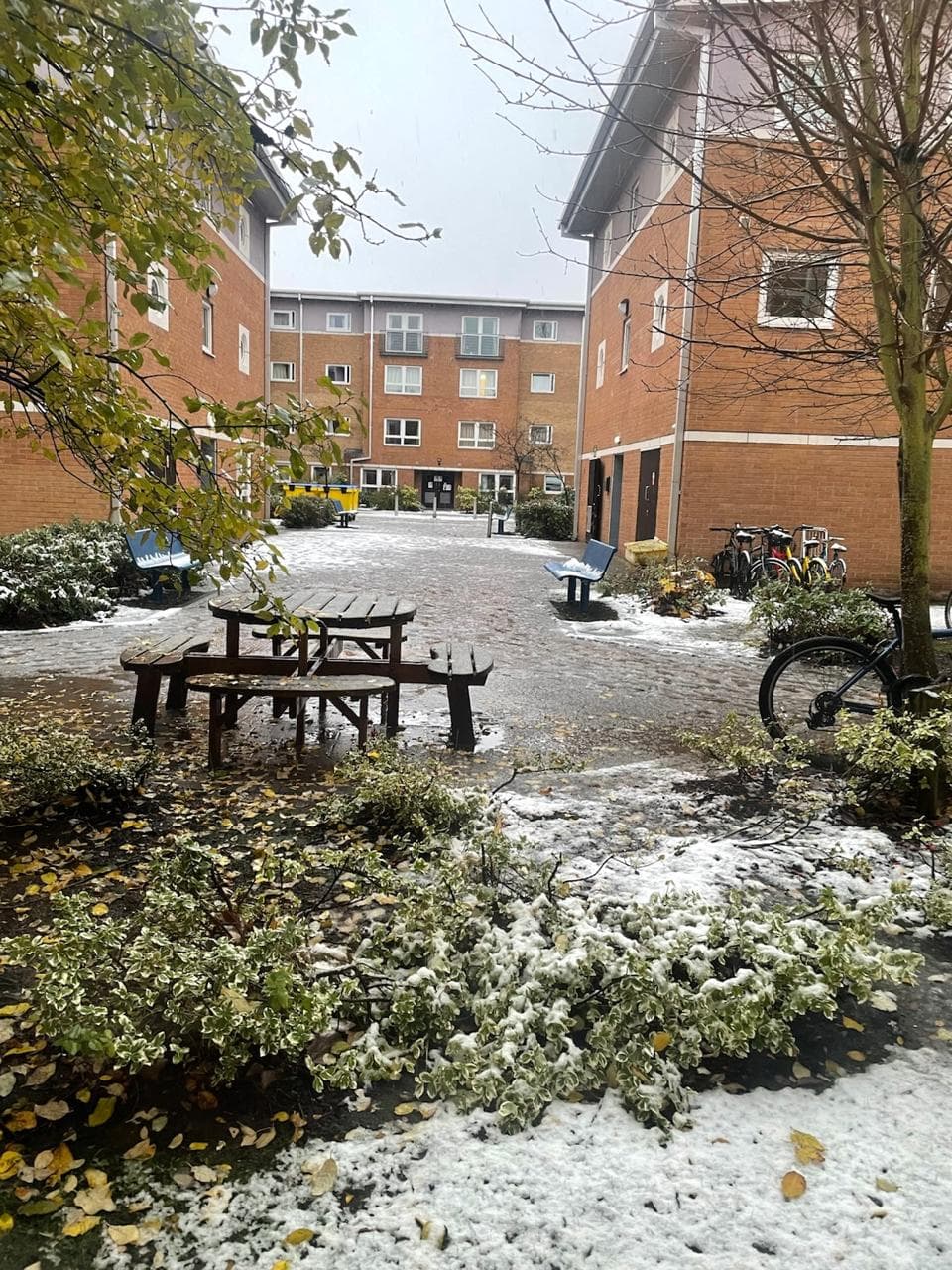What Students Say
Likes
- The University was very welcoming and the faculty/course related staff were very helpful and made sure that we understood how things were run in the university. (As it is usually different from what we learn back in India).
- Most of the programs in the university were 80-85% practical. This made sure that we were constantly engaged in the program. They understood that theory was not as engaging even though the material was amazing!
- They always arranged programs and job fairs. This gave us a great opportunity to communicate with employers and other companies. This was a great initiative because the process of job applications were completely different in UK.
Dislikes
- One thing I disliked about the University is how they arranged the modules for you. Generally modules are supposed to be split evenly to make sure that students don't feel heavy load in one particular semester. I was stuck with a heavy first semester which made it stressful. This can be fixed by talking to the respective counselor.
- There was a point where some of the local students were racist towards the international students, this is something which can be handled if the student had updated or informed the staff. But again being in a different country, they were afraid of how the faculty would be biased towards their local students. This could have been prevented if the faculty had talked to the local students in advance.
- When it comes to the final project, students were told to pick from a set of given projects and work on them, I did not like this because the final project is something which you need to come up and work from scratch, not join in the middle just for the sake of it.
Course Curriculum
-
My course curriculum was difficult as compared to the curriculum in india, It was 85% practical which was new to me. Every day presentations and projects made the program very engaging.
-
Positive aspects would be-
Very practical and engaging course, You were always kept on your toes!
Amazing support from staff to help you out with doubts.
Great access to material such as labs which can be accessed anytime -
Negative aspects would be-
Staff always assumed we knew the basics, most students were studying after a break, so a recap of previous lessons would have helped.
Very close deadlines which made it hard to keep it up.
Some of the staff were very prude and know it all, meaning they never helped out students and assumed they knew everything,
Typically we had a maximum of three classes a day, duration would range from 1 to 2 hours,
Timing would be mostly in the morning from 9 to 10am or 11am. Very rarely we had evening classes. -
On an average we had around 40 students in our class.
6 Indians were in my course.
Admission Experience
-
I applied to 5 Universities they were,
Swansea University - Admitted
Teesside University - Admitted
Kingston University - Admitted
Salford University - Admitted
University of Liverpool - Admitted and Accepted.
No rejections from any of them, -
I did not get any rejections from these universities. The only rejection I got was from one University which was in Canada.
Ryerson University - Canada
I was rejected because of my grades I believe.
-
I chose this particular college because it is a Russel Group University. I looked into and reached out to the alumni as well and got good feedback from them. The modules related to my course was very good.
-
The admission process was quite simple, I did not have to pay any application fees. I had to upload all my documents which were required and got a conditional letter.
-
I struggled with one thing which was called an ATAS certificate, This was something which was needed for my particular course, that took about a month to arrive, this slightly delayed the application process, because I could not apply for my visa without the CAS letter and ATAS.
-
Eligibility Criteria was not very strict in my University, They needed you to get 60 percent above in all modules in your bachelors. They did not require IELTS at that time, But I had written IELTS already in advance which I had submitted to them. This was useful. This is because I was exempt from a module called technical english which was mandatory for all international students.
-
Overall admission experience was very smooth for me. The highlight for me would be the constant support I got from my department head, She was in constant contact with me via email. She cleared all my doubts and was very supportive even when I reached Liverpool.
-
I applied for the September intake, I think it is called the fall intake, My course start date for September 26th.
-
The admission process was smooth except for the delay in ATAS. This took a month to arrive and my visa was delayed as well.
Jan - Applied to University
Feb - Conditional Letter received
March - Applied ATAS
April - Paid Fees
May - Got ATAS and paid fee
July - Got ATAS and CAS from University and applied VISA
Sep 11- Got VISA
Faculty
- In my program, we had around 4 staff and 40 students. This ratio has an influence on the overall quality, but again this depends on the staff and their profile and how they interact.
- Our staff were really good and were always interacting with students even if its about topics outside the program. This made sure that all the students had good morale and respect.
- The way they teach is not so different as to what you see in India. Some staff were very conventional in the way they teach, completely theory based, whereas other staff had a completely opposite practical approach where they made sure we were always engaged through lab sessions.
- Course content was enough to land a job, given you got through all other miscellaneous requirements. Faculty members were very helpful in helping you secure a job, they always sent you emails and referrals to good tier 1 companies. But they were not so involved in part time work, this is because they wanted us to focus on our program.
- But they got us in their network and helped us gain a lot of connections with good high profile people via LinkedIn.
- The faculty I admired the most was Dr. Yinan Wang. He was a very young professor who was strong in aerostructures. Most students did not like him because of his way of teaching to which I would agree. He struggled a lot to teach a group of students.
- For my project, he was my supervisor and he was very helpful and amazing when you learn from him through 1 on 1 sessions. He completely understood my profile and made sure I learnt everything required for the project and made sure I was engaged throughout the dissertation period.
Campus Life
- Our college had only one main campus which was in central Liverpool L7.
- Our campus had the following-Sports Centre,Guild for students,Two libraries, one for science and one for business and non science,Canteen and cafe everywhere,Our own Starbucks,Medical Camps,Food stalls.
- Our university did not have any major festivals or events, but before the classes we had a big freshers week which was very much fun and entertaining.
- The university had loads of clubs you can join and participate in. I was part of the football club. University always arranged events based on the cultural festival,
- For Chinese New Year, they had loads of Chinese related events based on their culture.
- When Liverpool won major games they had fun events planned to celebrate their victory.
Part Time Jobs
- It is very hard to secure any sort of teaching roles or research roles within the University.
- If you had a very good academic profile, then it is possible to get those jobs.
- These kind of jobs pay around 20 to 30 GBP per hour. Other jobs in the campus which was available was career coaching, they paid minimum wage which was around 9 GBP per hour.
- Usually hourly wages ranged from 9 - 10 GBP. Maximum hours per week for a student was 20 hours.
- It is difficult to land a part time job within the university due to the competition. But it is easy to land a part time job outside the university.
- Students earned around 9-10 GBP per hour for day time jobs. For night time jobs they earned around 10-14 GBP per hour. It is easy to secure a part time job, They just need to be consistent and work hard on their CV and do well on their interviews. To apply for a part time job, one must have his NI number in hand, This is called National Insurance Number. This will take 4 weeks to arrive, They cannot apply for jobs without a NI number. Usually the best platform for part time jobs in INDEED, You usually shortlist and apply with your CV, Most of the time it is based on first come first serve basis. So they need to apply quicker and faster. Then they get shortlisted for an interview which is usually very easy to clear.
Placement
- 50% is the chance to secure a job within the first 6 months, This is because most companies are not ready to sponsor a work visa for them. The companies which hire these students are either ready to pay for the visa or the student might have an existing post graduate visa.
- The salary range averages around 25000-30000 GBP per year after graduation.
- Students are told to use sites such as gradcrackers and linkedIN to find stem degree jobs, But it is very hard to land a full time job related to their degree, so they are advised to apply for internships. This will help them build a profile and land a job, but this is a lengthy process and will not work sometimes. Networking also helps.
- One of my classmates named Jack got placed within a month of graduating, But again he is a local citizen and had no visa issues so he was easily hired. The international student who I knew got hired was my classmate Suriya. He got placed in a job which is not relevant to his field, He got this job through heavy networking and connections.
- Major companies that were hiring graduates in my program were Airbus, BAE systems, Mercedes AMG, Mclaren.
Accommodation
- I found my accommodation through a third party company called Amber, It was an online platform. They assigned me a person, he assisted me in picking out the rooms and the payment process accordingly. My monthly rent was around 500 GBP.
- It was an en-suite, meaning it had an attached bathroom which was private, I did not face a lot of challenges when booking my accommodation, This was because I booked it way in advance. I would recommend future students to go with private rooms which can be rented.
- My accommodation was a 5 minute walk to the campus. So it made the commute easy, Most of the indian students were living in my accommodation.
Exams
-
No exams were required for admission at that time, But I did write IELTS which was helpful.
-
Documents which were required was:-
2 LOR
CV
STATEMENT OF PURPOSE
ATAS
MARKSHEETS (COLLEGE AND SCHOOL)
MEDIUM OF INSTRUCTION
PROVISIONAL CERTIFICATE. -
No interview process was required.
-
I believe this is for my course in particular, But for other courses the required documents may differ.
Fees
-
The overall Fee for the course was 25000 GBP, For accommodation It was 6000 GBP for a year. Living expenses were 9000 GBP for a year.
-
Fees were charged per quarterly in this University. It can also be paid semester wise.
-
My monthly expenses were -
Rent - 500 GBP
Food - 150 GBP
Transport - 80 GBP
Other expense - 100 GBP -
I was also working part time at Primark Liverpool, I was earning around 900 GBP per month which was enough to support myself
Scholarship
-
Yes, I received two scholarships.
-
They were-
University of Liverpool’s Commonwealth Postgraduate Bursary. The award value was a deduction of £2,000 from tuition fees. -
Eligibility Criteria was- I was eligible for this award on the basis that I am a citizen from a Commonwealth country, classified as a new student to the University of Liverpool, self-funded, and was starting my studies in academic term 2022/23.
-
The second one was,
University of Liverpool’s PGT Vice-Chancellor’s International Attainment Scholarship -
The award value was a deduction of £2,500 from my tuition fees for my one year postgraduate taught programme.
I was eligible for this award on the basis that I was classified as a new student to the University, self-funded, international fee-paying student, starting my studies in academic term 2022/23, and have achieved excellent academic grades, as defined by the University of Liverpool.



%20-%20Siddarth.jpeg)
%20-%20Siddarth.jpeg)
%20-%20Siddarth.jpeg)
%20-%20Siddarth.jpeg)
%20-%20Siddarth.jpeg)
%20-%20Siddarth.jpeg)
%20-%20Siddarth.jpeg)
%20-%20Siddarth.jpeg)

%20-%20Siddarth.jpeg)



